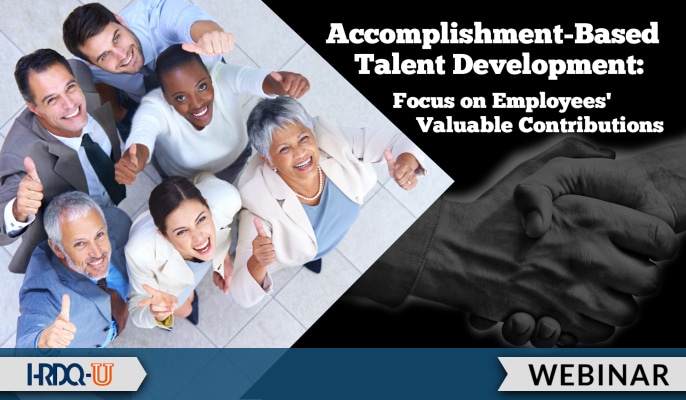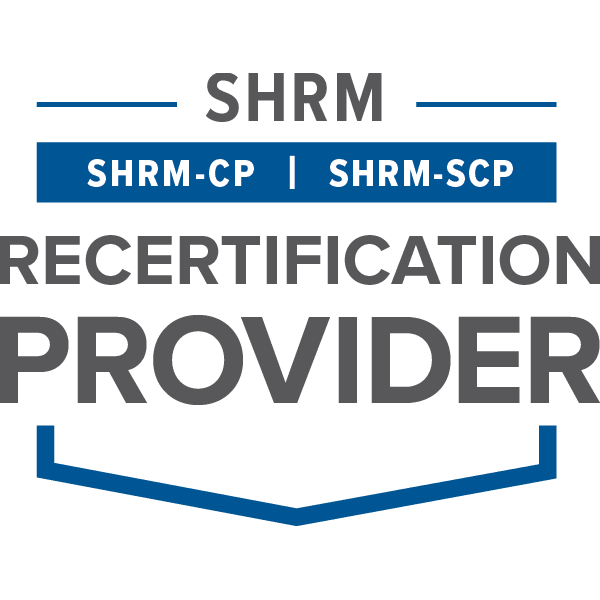Log In
View Upcoming Events

Recorded, on-demand webinars are available for HRDQ-U Members. Join today!
Discover a powerful shift in how we approach performance improvement – one that centers on what people actually produce, not just what they know or how they behave. This webinar explores the origins and impact of accomplishment-based performance improvement, inspired by Thomas F. Gilbert’s groundbreaking work in Human Competence: Engineering Worthy Performance.
Unlike traditional talent management models that focus on skills or competencies, an accomplishment-based approach zeroes in on tangible outcomes that truly drive value. You’ll gain insight into a full-spectrum model for hiring, onboarding, coaching, training, and continuous development – one that makes performance easier to define, measure, and connect directly to organizational success.
By defining roles through the outputs they generate – decisions, deliverables, relationships, and innovations – organizations can more effectively structure behavioral interviews, design performance-based onboarding and training, and guide coaching conversations that focus on improving impact. This approach not only boosts productivity but also strengthens engagement by giving employees a clear line of sight between their daily work and broader business results.
We’ll also explore how continuous, outcome-focused coaching, highlighted in the 2018 Harvard Business Review article “HR Goes Agile,”can become a core driver of development and recognition. When coaching centers on helping individuals achieve high-value accomplishments, it creates a culture of continuous improvement and growth.
Join us for this enlightening webinar where we will take a deep dive into the many facets of accomplishment-based talent development and what you can do to implement it in your organization.


Dr. Carl Binder, CEO of The Performance Thinking Network, began as a behavior scientist, one of B.F. Skinner’s last graduate student at Harvard. He spent the 1970s conducting research, training teachers, and consulting with educational and human service organizations across North America, with a focus on fluency-based instruction.
Shifting to corporate training in 1982, he joined the International Society for Performance Improvement, where he met Tom Gilbert, Geary Rummler, Joe Harless, Roger Kaufman, and other performance improvement pioneers, who proved to be generous mentors.
Founder of four consulting firms, he has continued to refine performance improvement models and methods, partnering with clients and stakeholders, developing performance consultants, and teaching leaders and managers to contribute to continuous improvement. Over 40+ years, Carl has developed what is known as Performance Thinking®, a powerful but flexible accomplishment-based performance improvement methodology that his firm certifies others to apply in programs for different organizational roles. Adopted by clients on six continents, Performance Thinking has built a global community of practice.
Carl has published several dozen articles and chapters, spoken at events worldwide, and received four Lifetime Achievement awards from the American Psychological Association, The International Society for Performance Improvement, the OBM Network, and the Standard Celeration Society.
Training Tools for Developing Great People Skills
This event is sponsored by HRDQ. For 45 years HRDQ has provided research-based, off-the-shelf soft-skills training resources for classroom, virtual, and online training. From assessments and workshops to experiential hands-on games, HRDQ helps organizations improve performance, increase job satisfaction, and more.
Learn more at HRDQstore.com

“This session very much raised my awareness of the differences between competency-based performance vs the output of what we are trying to achieve. . . . This session has enticed me to want to find out more.”
Sandra C.
Head of Quality
ELA Training Services

“You are the best. I encouraged my team to register with HRDQ-U webinars as they need.”
Anneke K.
VISTA Leader
Waynesville R-VI School District

” The presenter gave great ideas about accomplishment-based performance, development, and measurement, particularly how it might produce better results than competency models.”
Brian C.
Librarian
LSU